VIT Bhopal University | M.Tech Admissions 2025
M.Tech admissions open @ VIT Bhopal University | Highest CTC 52 LPA | Apply now
GATE 2025 is being conducted by IIT Roorkee. The GATE Paper Analysis 2025 gives an overall review of the February 1, 2, 15 and 16 paper. The analysis contains subject-wise difficulty levels, question trends, topic weightage, and student feedback. All the exams are now over, updates on difficulty levels, memory-based questions, and student responses are given below. Aspirants can check the GATE paper analysis 2025 to know the high weightage topics to prepare for the test. Gate 2025 February 16 Shift 2 just got over a while ago and updates are now available below!

Also Read:
Based on the GATE 2025 paper analysis, candidates can evaluate their performance. After providing the GATE 2025 exam analysis, the institute has also release the expected cutoff marks. We update the expert GATE 2025 paper analysis in this article.
The GATE 2025 Paper Analysis for February 16, Shift 1 and Shift 2 offers an in-depth review of both exam sessions held today. It includes insights into subject-wise difficulty, question distribution, topic weightage, and student feedback. With memory-based questions and expert evaluations, candidates can analyze the exam pattern, gauge their performance, and anticipate expected cutoffs. Stay informed with real-time updates from test-takers and subject matter experts. GATE 2025 Paper Analysis 1 Feb and 2 Feb Shift 1 and 2 updates are now available!
Overall Difficulty:
Subject-wise Weightage (Civil Engineering):
Mathematics & Aptitude:
Key Topics Covered:

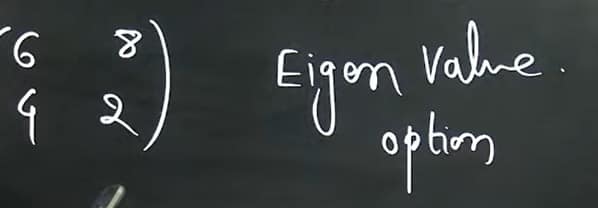

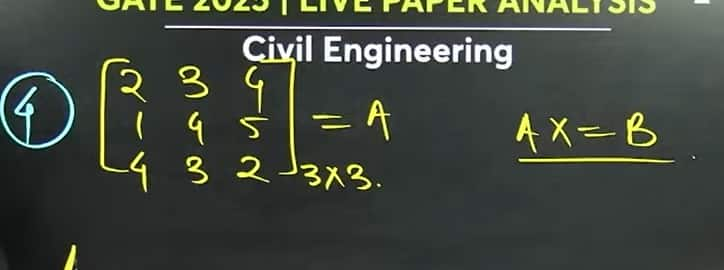
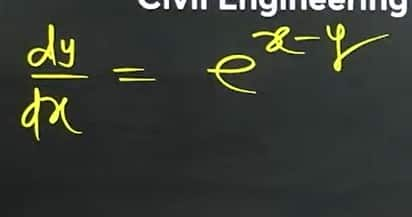
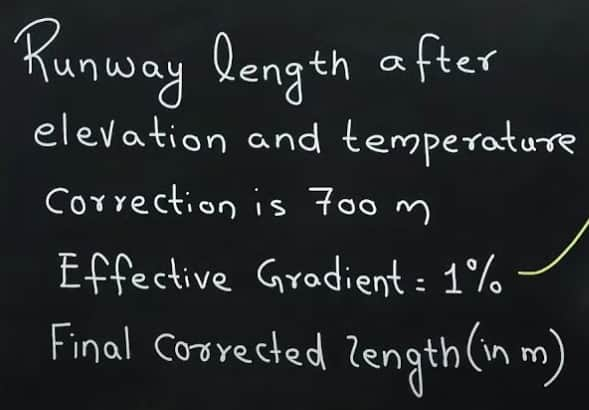
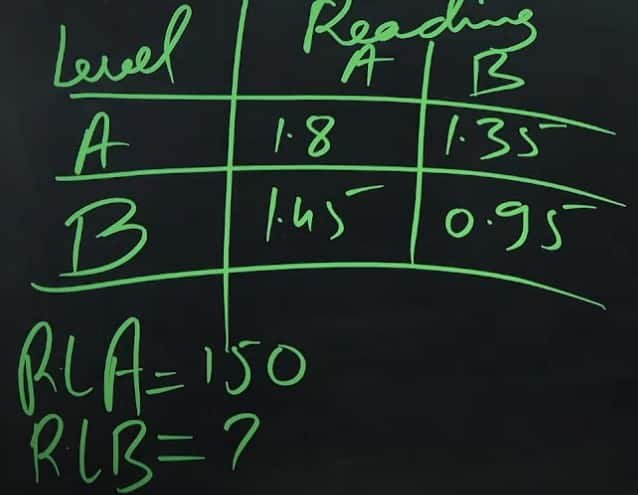
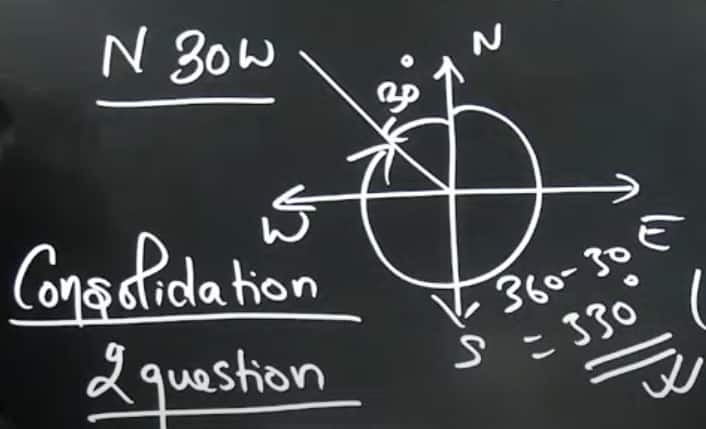
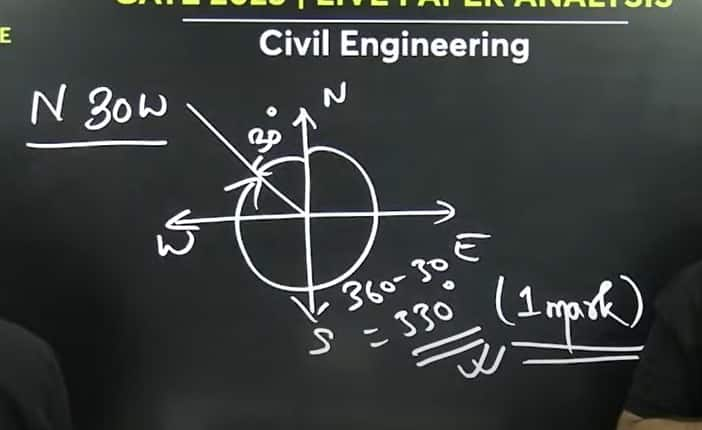
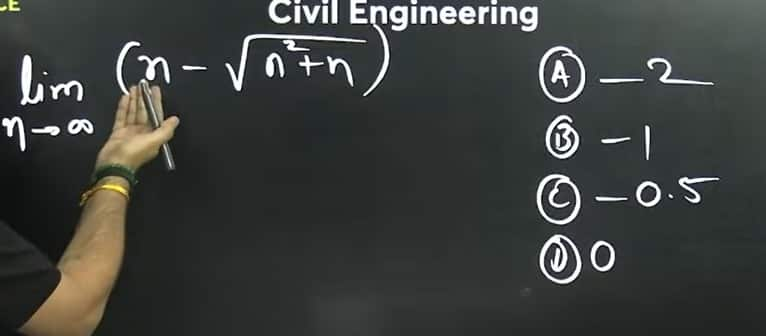


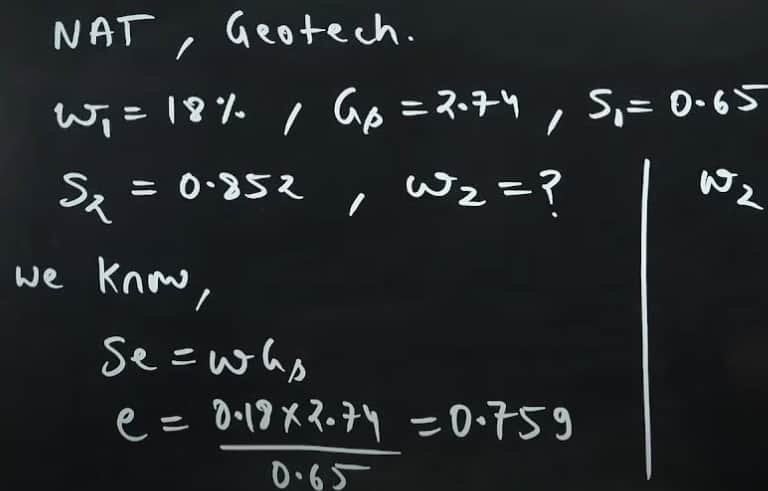
GATE 2025 Paper Analysis February 15, Shift 1 and 2 offers a comprehensive review of both shifts held today. The analysis includes subject-wise difficulty level, question distribution, topic weightage, and student reactions. Memory-based questions and expert analysis will enable candidates to grasp the exam pattern, evaluate performance, and forecast expected cutoffs. Get real-time reviews from test-takers and subject matter experts.
Most of the students said the overall difficulty level of the paper was moderate while a few of them say, it was easy.
The questions were asked from SVM algorithm, Hashing and Linear probing.
Around 1-2 questions were from the Python list (extend) and dictionary list.
The questions from DSA were lengthy.
There were questions from Binary Search- worst case and recursion.
A question was there from insertion sort.
There were questions from limits and derivatives as well.
In DA, mathematics was of 43 marks.
Most of the students have said CSE was tough.
Inorganic chemistry was a bit tough while physical and organic chemistry were easy in the paper.
There were direct questions from physical chemistry.
MSQs in Chemistry were tricky.
There were questions from transition moment integral, particle box and Arrhenius concept.
There were questions from EPR, NMR in chemistry.
Subject | 1 Mark Question | 2 Mark Question |
Probability & Statistics | 6 | 6 |
Linear Algebra | 5 | 6 |
Calculus & Optimization | 2 | 3 |
Programming, Data Structure & Algorithms | 4 | 6 |
Database Management System & Warehouse | 3 | 3 |
Machine Learning | 4 | 5 |
Artificial Intelligence | 1 | 1 |
General Aptitude | 5 | 5 |
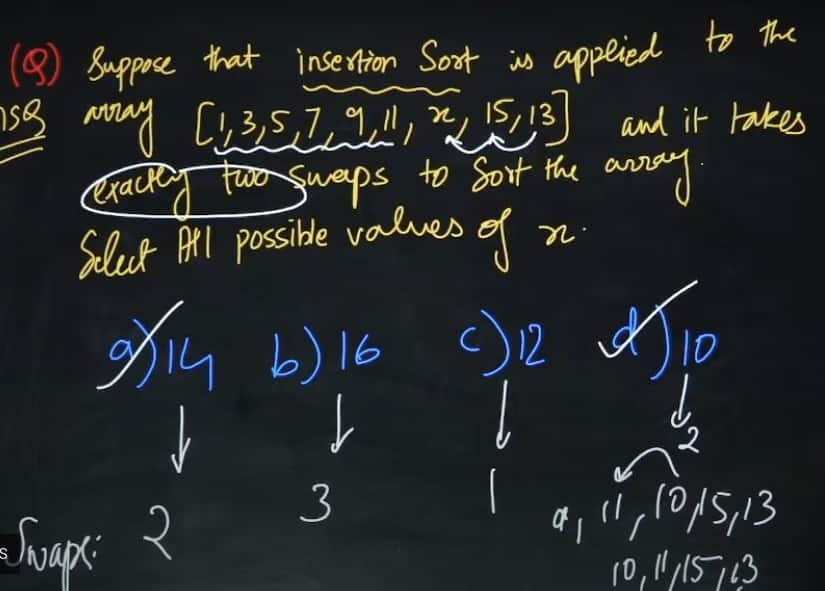
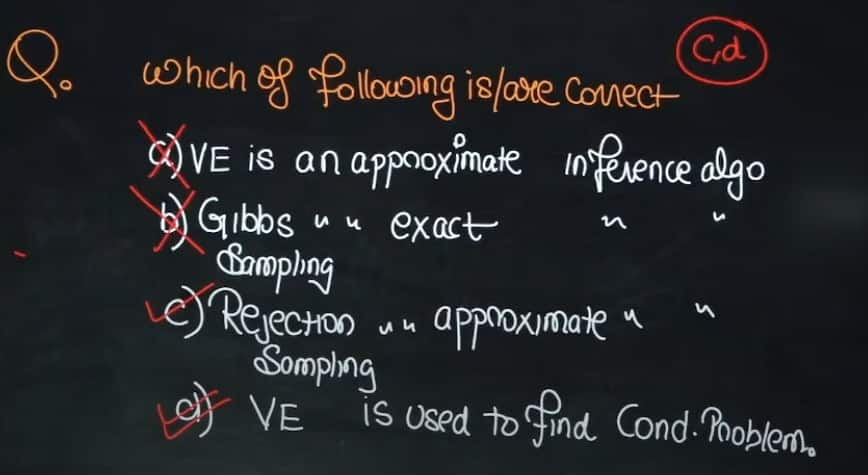
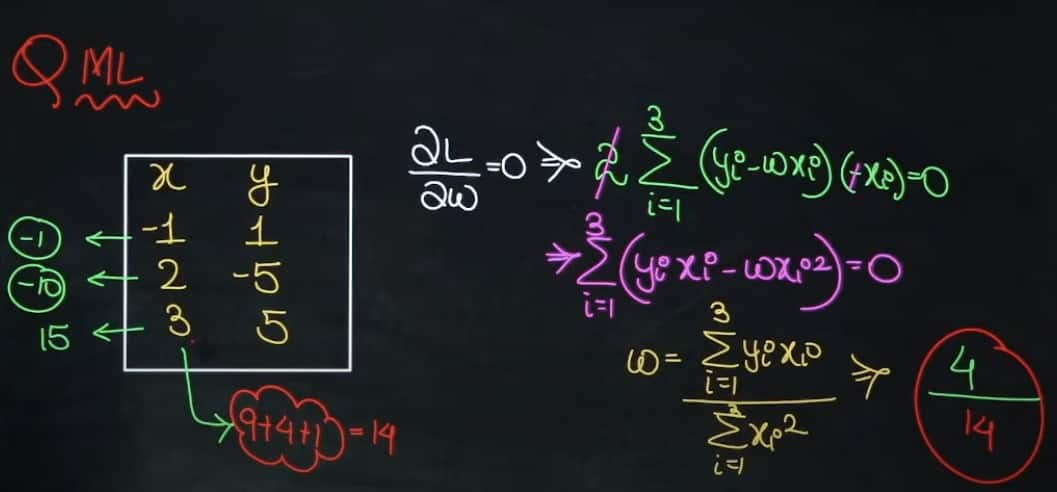
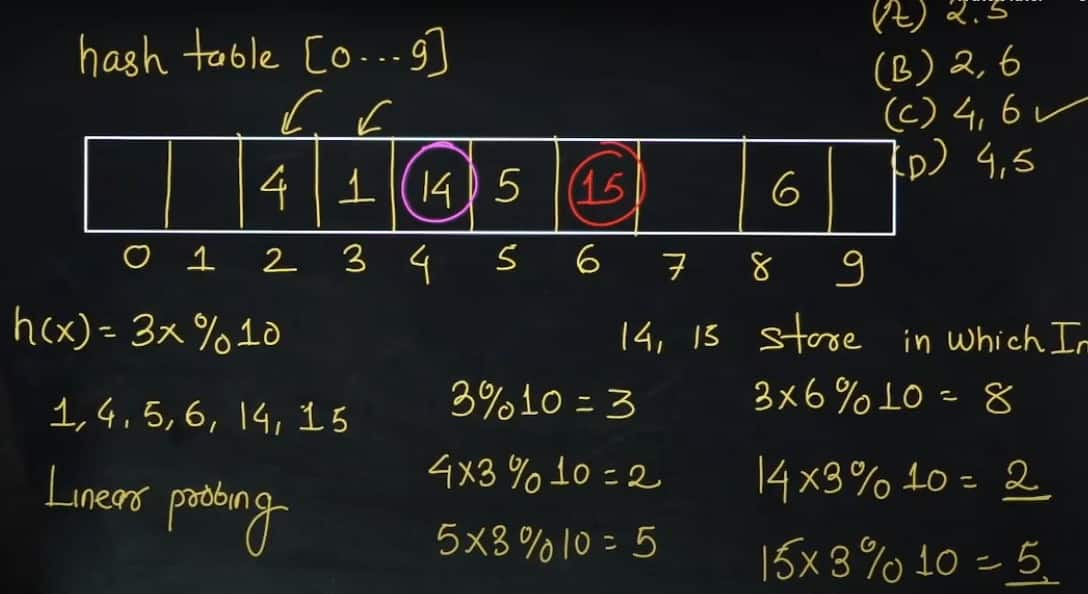
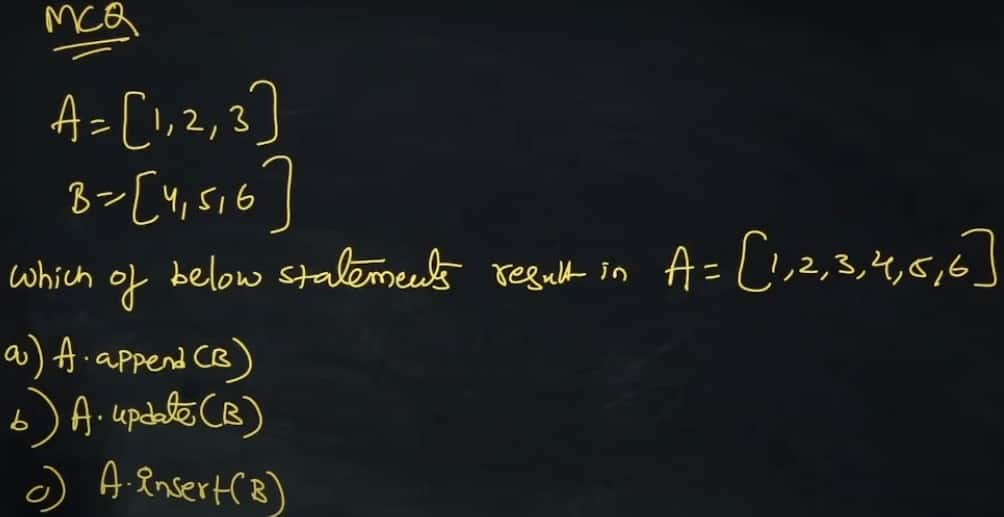
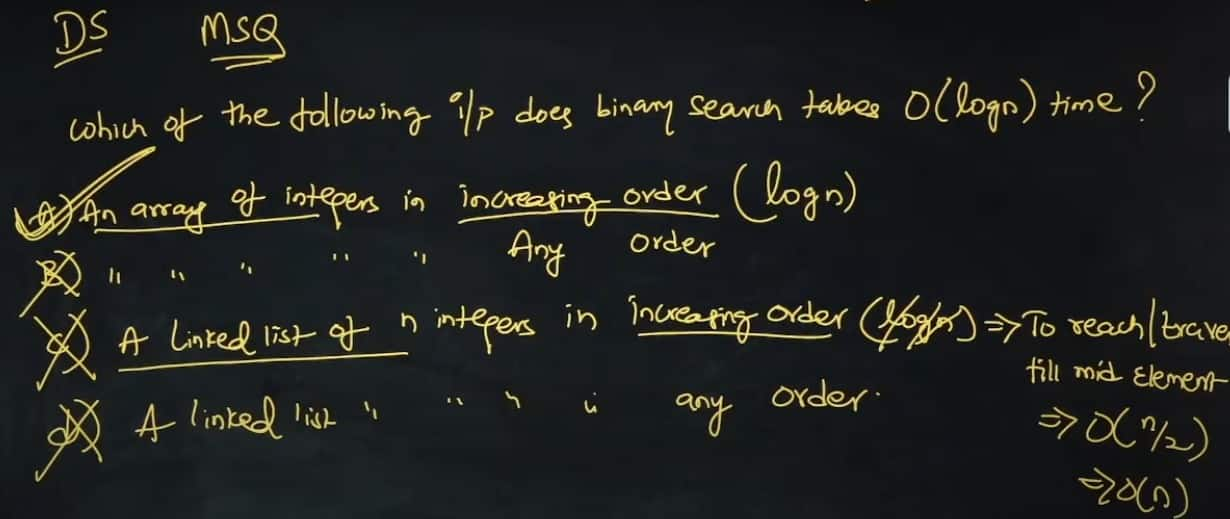

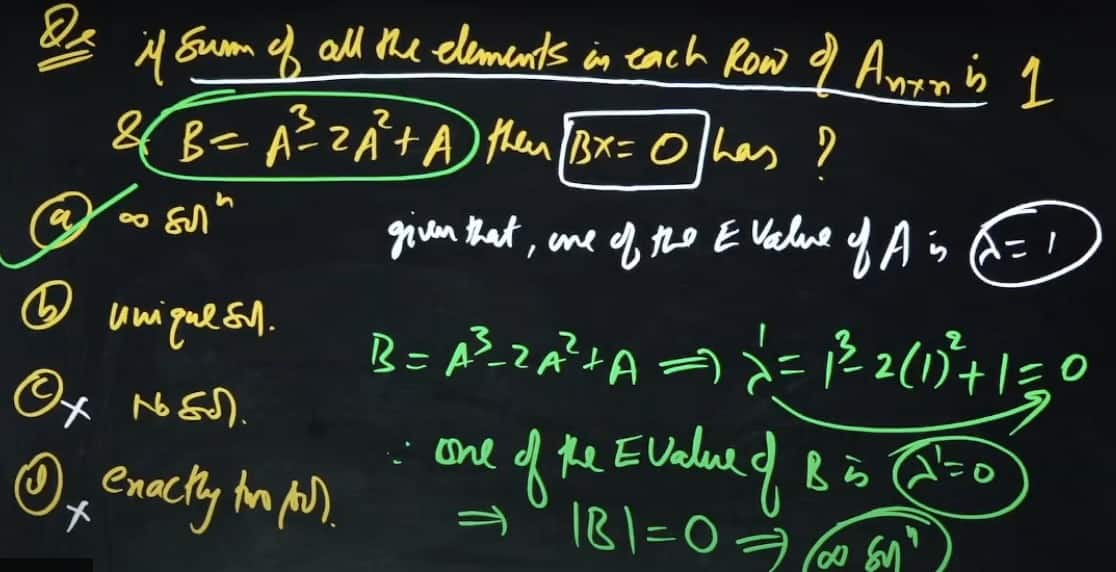
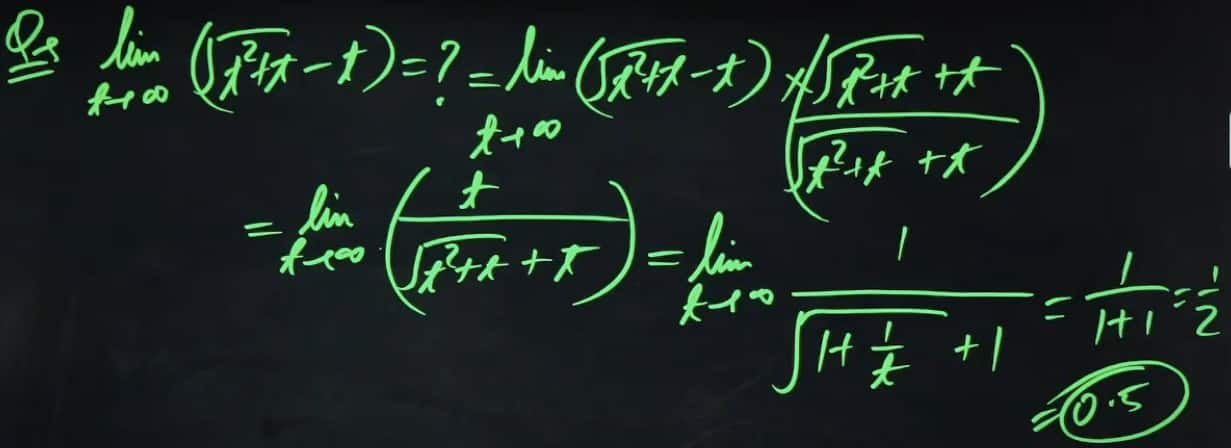
GATE 2025 CSE Paper Analysis | To be notified |
GATE 2025 EE Paper Analysis | To be notified |
GATE 2025 Mechanical Paper Analysis | To be notified |
GATE 2025 Electrical Paper Analysis | To be notified |
In this section, we will discuss about the GATE shift 2 papers, their difficulty level, high weightage areas and frequently asked questions.
The overall difficulty level of the exam was around moderate to tough.
There were questions from EDC, analog section.
A question of network theory was of 4 marks.
Both EDC and analog questions were tough.
Questions were conceptual and tricky.
EMFT section was easier.
Digital electronics was of highest weightage 12 marks.
There were questions from iteration and black box variable capacitor as well.
Most of the students considered network theory to be easier than other sections.
Questions from control were difficult while aptitude section was easy.
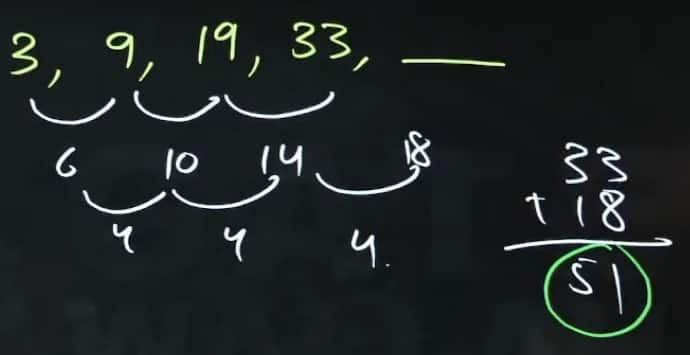
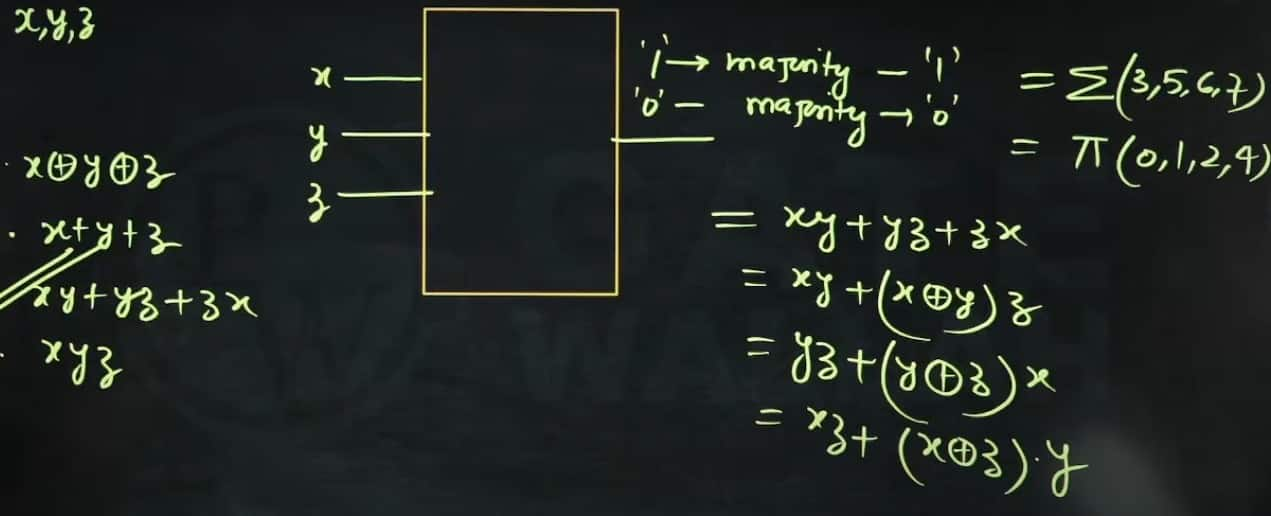
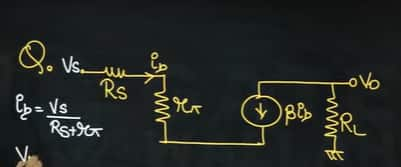
Also Check:
Referring to the last year's exam analysis of GATE, candidates will be able to figure out the important topics. Candidates can check the previous year’s GATE paper analysis to have an idea regarding the difficulty trends of the entrance exam.
The difficulty level of the Electrical Engineering (EE) paper is considered moderate, with the EE paper being comparatively tougher than the Electronics and Communication Engineering (ECE) paper.

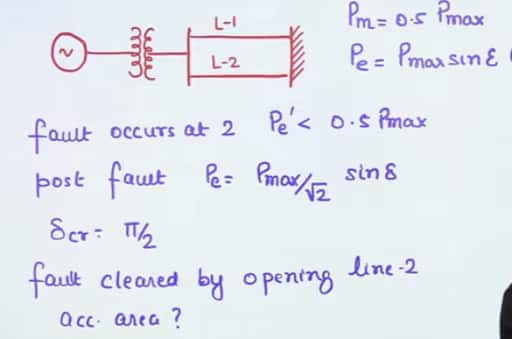
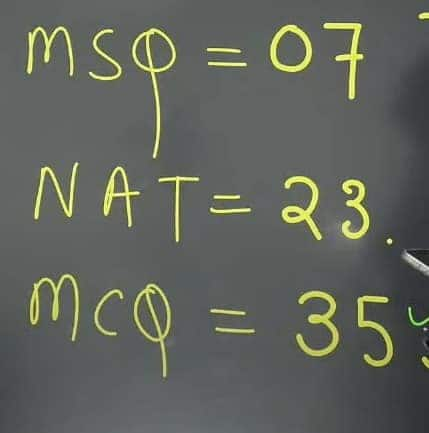
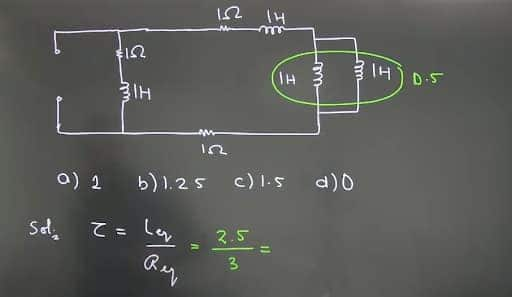
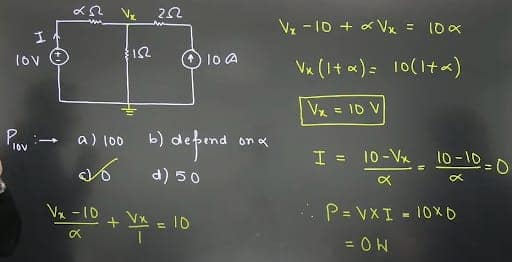
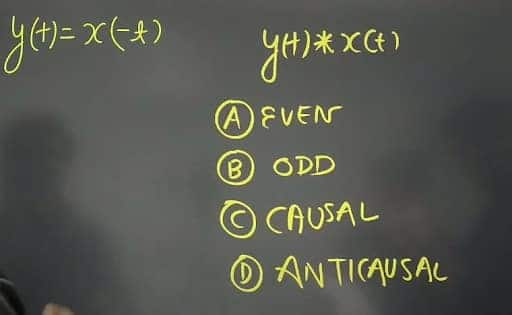
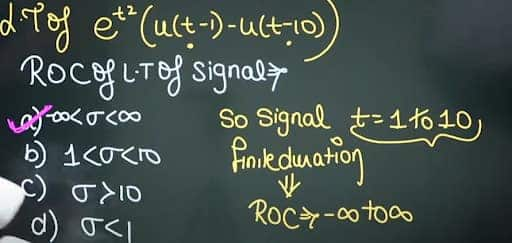
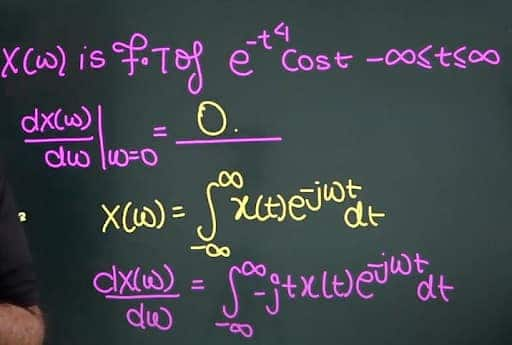
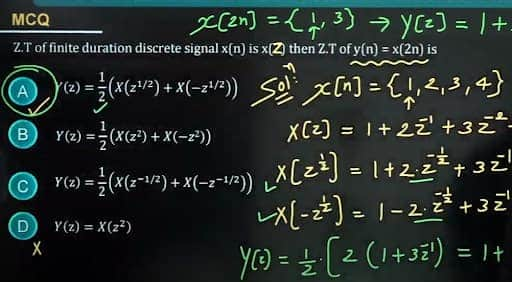
The analysis for Electronics and Communication Engineering (ECE) paper indicates a difficulty level ranging from moderate to hard.
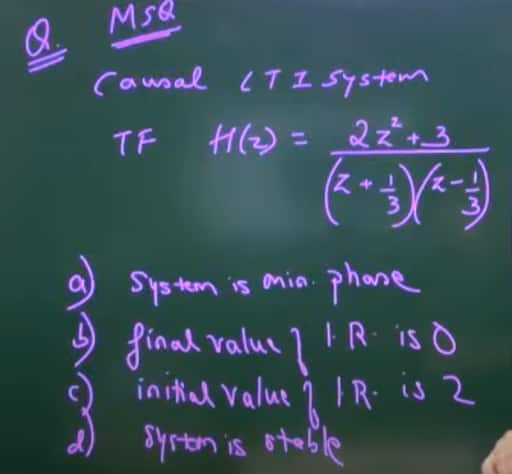

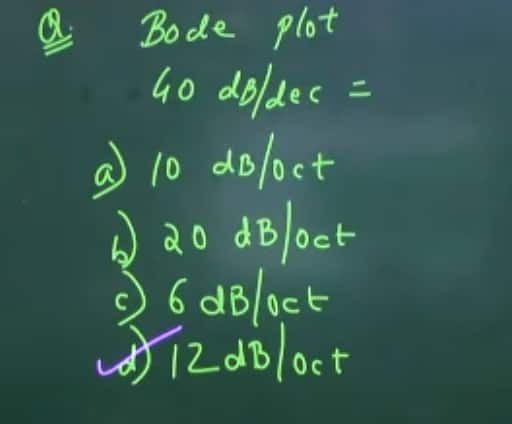
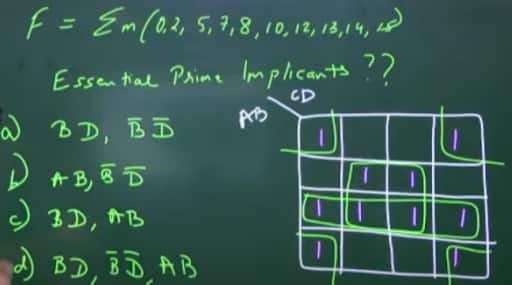
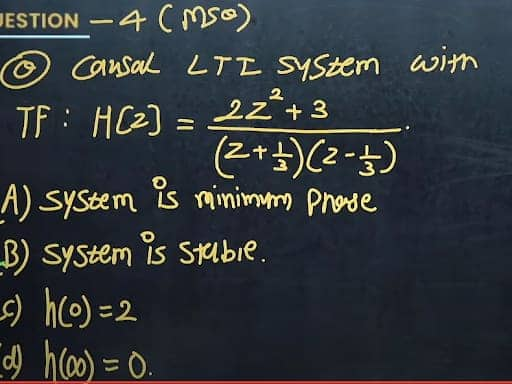
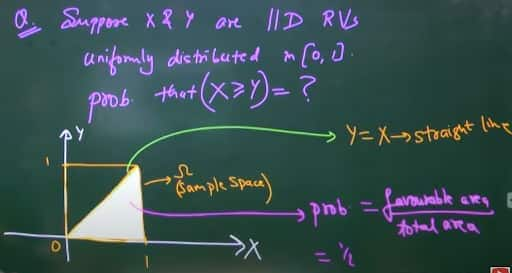
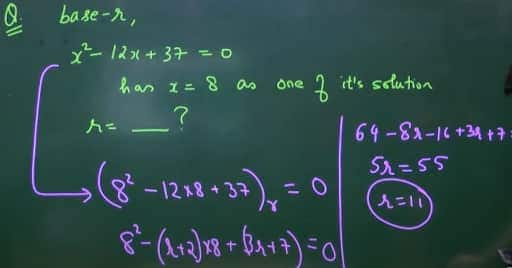
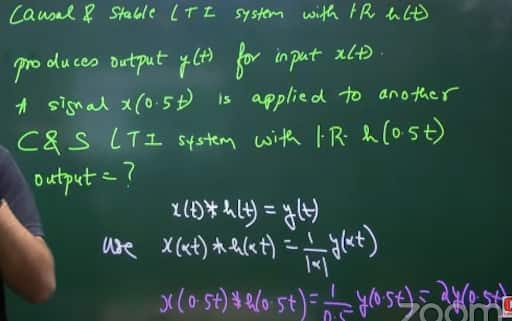


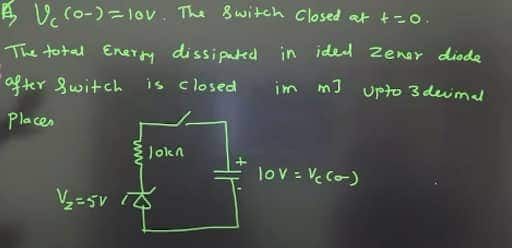
GATE 2024 ECE Weightage
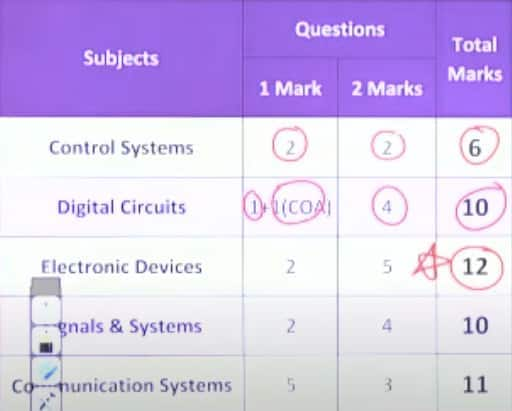
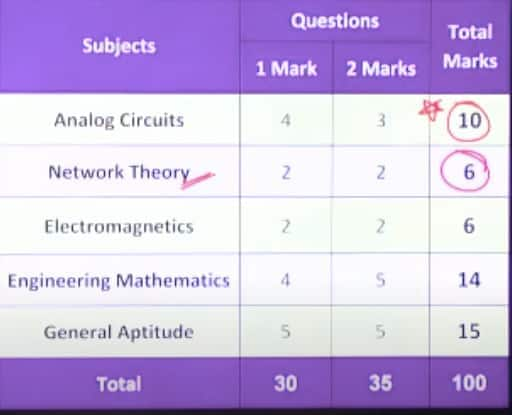
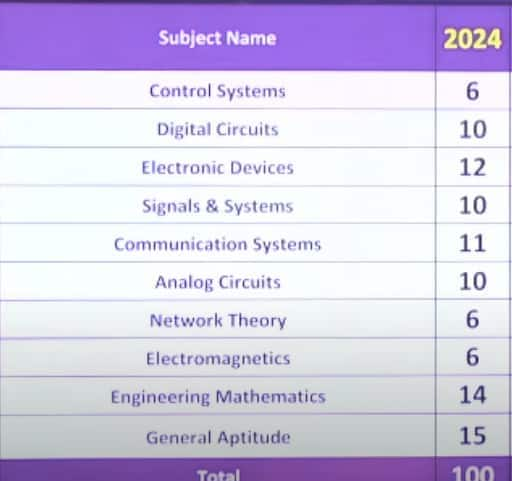
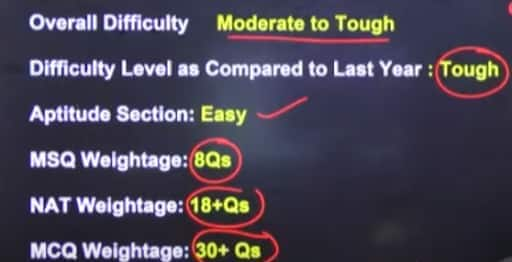
The analysis for Computer Science Engineering (CSE) reveals that 37% of the questions were of moderate difficulty, 33% were hard, and 29% were easy. Overall, the paper difficulty was assessed as moderate.
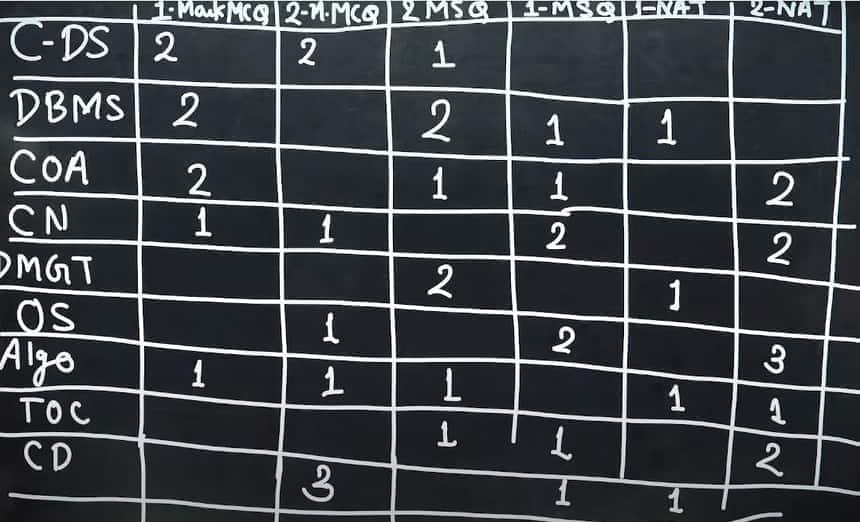

GATE CSE Maths questions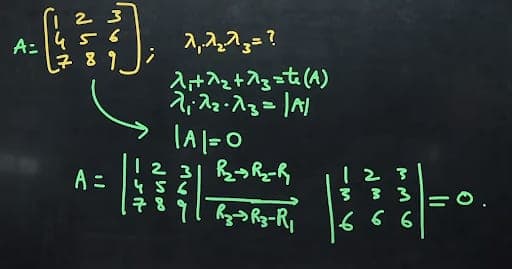
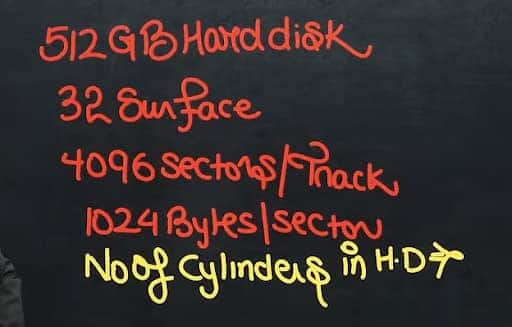
GATE CS weight-age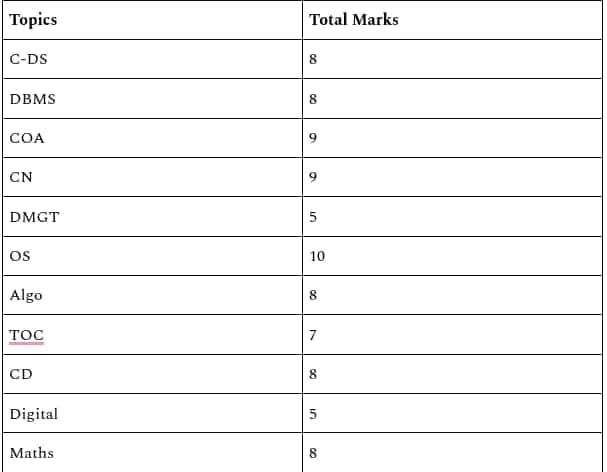
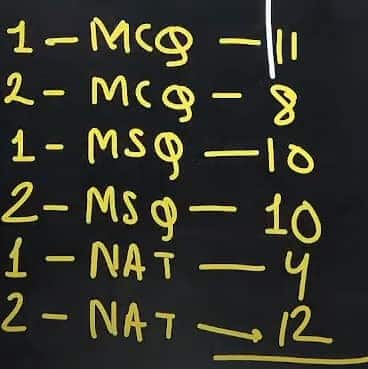

GATE 2024 Aptitude Question
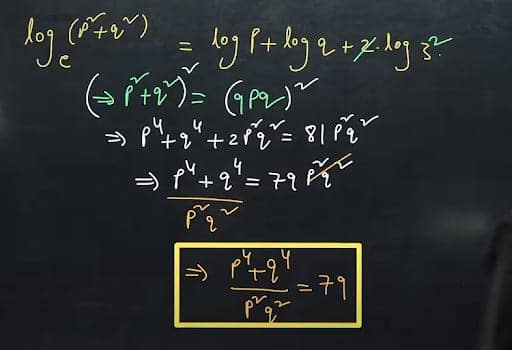
Question from DBMS chapter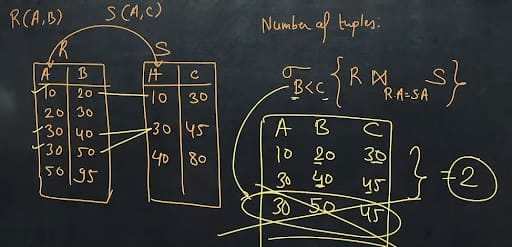

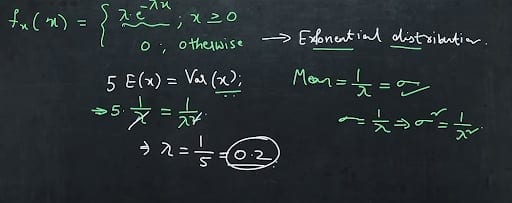

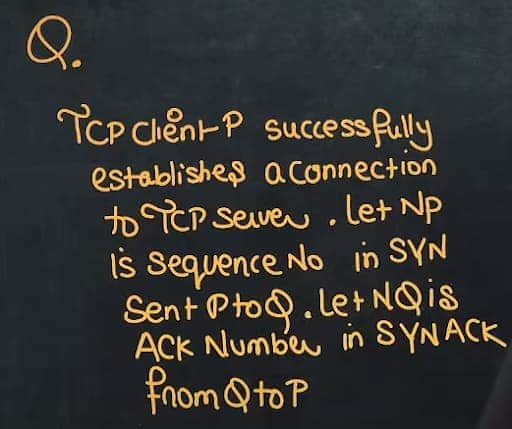
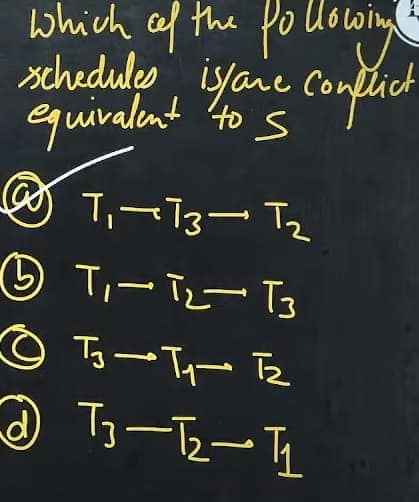
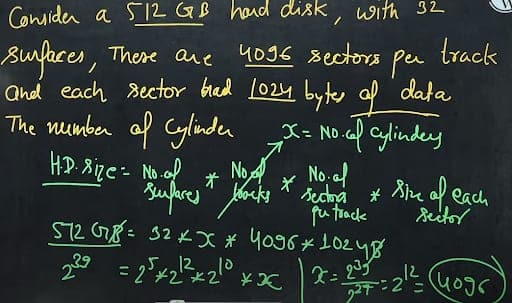
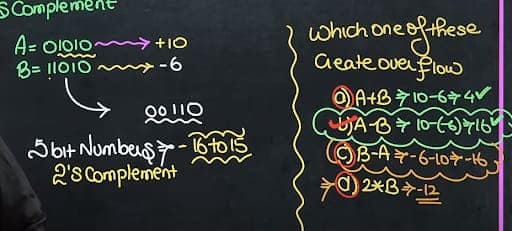
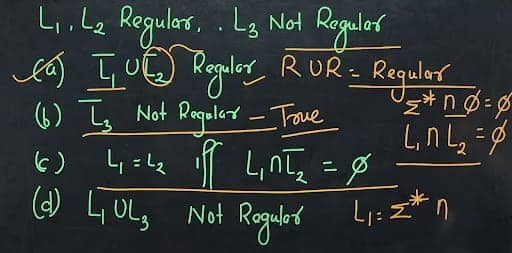
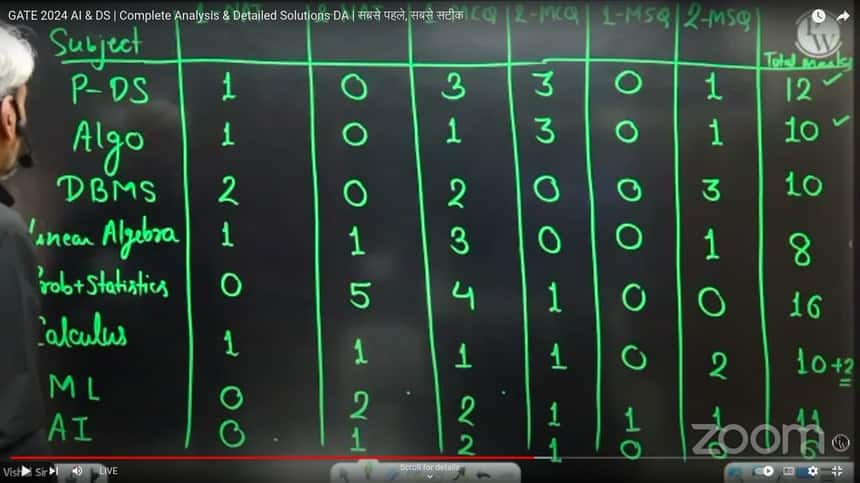
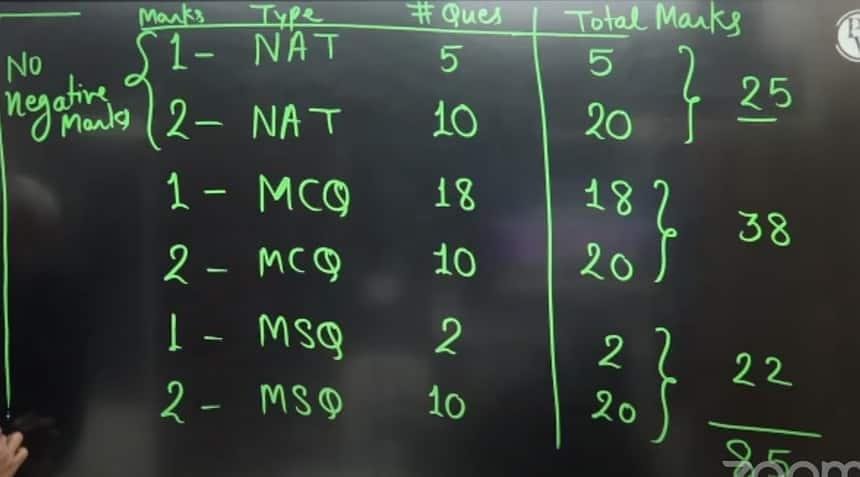
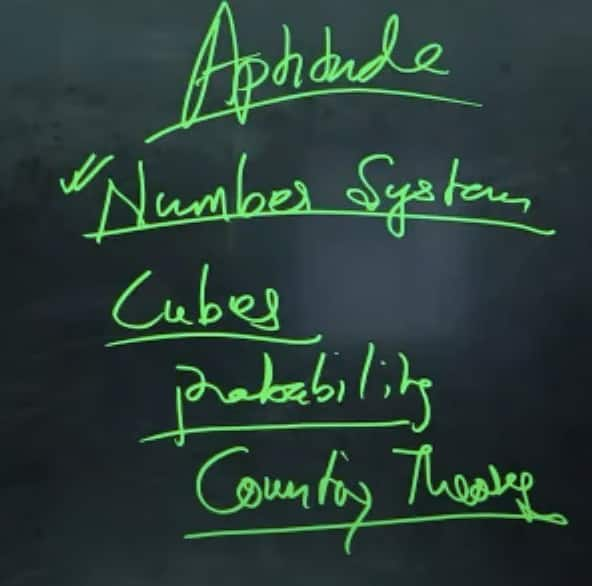
The authorities have concluded the GATE 2023 entrance exam today for all shifts. Candidates can check the Civil engineering paper analysis for February 12 shift 2 released by GATE academy here.
As per the students based reactions, the GATE 2023 exam was moderate level.
The topics asked in exam was Hydrology, engineering mathematics, irrigation, SOM +Structure, environmental engineering and more.
Types of Question | Number of Question |
MSQ | 11 |
NAT | 19 |
MCQ | 35 |
The authorities have concluded the GATE Civil Engineering paper for shift 1 on February 12. Candidates can check the detailed analysis of GATE 2023 exam here.
The civil engineering paper level was moderate to tough. The maximum weightage of questions asked from was foundation/Geotech.
As per the student-based reactions the Geotechnical Engineering consists 17 marks weightage, Environmental engineering 13 marks, Hydrology 5 marks, FM and OCF cosist of 7 marks and maths 13 marks.
The questions asked from topics like, engineering mathematics, Geo technical engineering, environmental engineering and hydrology.
Types of Question | Number of Question |
MSQ | 9 |
NAT | 22 |
MCQ | 34 |
The authorities have conducted the GATE PH and CH paper in shift 2 from 02:30 PM to 05:30 PM. Candidates who appeared for the exam can check the paper analysis based on candidate reactions and experts view below.
The questions in aptitude were based on inference, syllogism, analogy, fill in the blanks, spatial aptitude
IIT Kanpur concluded the GATE IN paper on February 11 in shift 1. The duration of the exam was 3 hours. The exam started at 09:30 AM. Students have started giving their reactions on the GATE IN paper. Here we have provided a completed analysis of the GATE IN 2023 paper based on students' reactions and the GATE Academy experts.
According to the students, the paper was easy.
GATE IN question paper was based on the topic of limit, differential equation, Matrix, Maxima & Minima, standard deviation, statistics, and number system.
GATE IN question paper consists of 65 questions. The distributions of the question paper were as following
Types of Question | Number of Question |
MSQ | 01 |
NAT | 33 |
MCQ | 31 |
IIT Kanpur concluded the GATE ECE paper on February 05 in shift 2. The exam was held from 02:30 PM to 05:30 P.M. Candidates can check today GATE exam question paper on this page. The GATE Electronics and Communication Engineering paper analysis 2023 is made available based on the reaction of students and GATE Adda2747 experts. Below is the complete analysis of GATE EC 2023 paper.
The total number of GATE EC questions is 65, out of which 45 MCQ questions 27 NAT and 4 MSQ questions.
The difficulty level of the GATE EC paper is moderate to tough.
GATE 2023 question papers were based on the following topics General Aptitude, EM, network, control system, analog circuit, signal and system, digital circuit, electromagnetic, communication, and electronic devices.
Distributions of GATE EC 2023 questions and marks
Types of Question | No. of question | Marks |
MCQ | 45 | 66 |
NAT | 16 | 27 |
MSQ | 4 | 7 |
GATE 2023 EC - Subjectwise marks distribution
Subject | Marks |
General Aptitude | 15 |
Engineering Mathematics | 12 |
Network | 8 |
Control System | 7 |
Analog Circuit | 10 |
Signal and System | 9 |
Digital Circuit | 5 |
Electromagnetic | 12 |
Communication | 15 |
Electronic Device | 7 |
The Indian Institute of Technology, Kanpur successfully conducted the GATE EE paper 2023 on February 5 in shift 1.
There were a total of 65 questions in the GATE EE paper, out of which 31 MCQ questions, 28 NAT, and 6 MSQ questions.
The question in GATE EE was based on maths, electrical machines, signal systems, power electronics, control systems, network theory, EMM, EMT, analogue, Digital, and microcontrollers. The weightage was given to the signal system topic.
The difficulty level of the paper is easy to moderate
GATE EE Topics | No. of Questions |
Maths | 09 |
Power System (PS) | 06 |
Electrical Machine (E.M) | 06 |
Signal System (SIS) | 09 |
Power Electronic (SCR, SCD) | 04 |
Control System | 05 |
Network Theory | 06 |
E.M.M. | 01 |
EMT | 01 |
Analog | 03 |
Digital | 01 |
Microcontroller | 01 |
GATE EE Exam Analysis 2023 by The GATE Academy
The Indian Institute of Technology, Kanpur successfully conducted the GATE 2023 CSE paper on February 4 in shift 1.
The total number of questions asked in the exam was 65, with 34 MCQ questions, 16 NAT and 15 MSQ questions.
As per the student's based reactions, the GATE CSE paper difficulty level was easy to moderate.
The topics asked in the exam were digital logic, discrete mathematics, Programming and Data Structures, and computer networks.
Type of questions | Number of questions |
NAT | 16 |
MSQ | 15 |
MCQ | 34 |
GATE CSE Topics | Total Questions Asked | Total Marks | |
1 Mark | 2 Marks | ||
Databases | 1 | 2 | 5 |
Operating Systems | 3 | 3 | 9 |
Discrete Mathematics | 1 | 4 | 9 |
Digital Logic | 4 | 2 | 8 |
Computer Networks | 2 | 3 | 8 |
Computer Organisation | 3 | 2 | 7 |
Data Structures & Programming | 2 | 4 | 10 |
Algorithm | 2 | 2 | 6 |
Theory of Computation | 3 | 3 | 9 |
Compiler Design | 1 | 3 | 7 |
Engineering Mathematics | 3 | 2 | 7 |
General Aptitude | 15 | 5 | 15 |
GATE CSE Exam Analysis 2023 by The GATE Academy
The GATE 2023 ME paper successfully held in shift 2 of February 4 exam.
The total number of questions asked in exam was 65, where NAT questions were 25, MSQ were 8 and MCQ were 32.
As per the students reactions the overall paper level was moderate.
The questions asked from topics like thermodynamics (1 question), material science (4 questions), heat transfer, strength of material (4 questions), welding, theory of machine, EOQ (1 question), LPP (1 question)
Type of questions | Number of questions |
NAT | 25 |
MSQ | 8 |
MCQ | 32 |
With the help of the GATE 2025 paper analysis, the candidates will be able to know the pattern of the GATE exam in regards to the division of syllabus, weightage, and more.
The question paper analysis of GATE 2025 helps in evaluating the performance of the candidates in the exam.
The required marks/scores for admissions into a particular college/institute can be determined by checking the GATE exam analysis 2025.
The coaching institute will release the GATE answer key 2025 after the conclusion of the exam. The answer key of GATE 2025 will be based on memory questions. Candidates can use the GATE answer key to verify their answers and predict the probable scores. The official GATE answer key 2025 will be released on the official website, gate2025.iitr.ac.in.
The GATE 2024 qualifying mark for CS in the general category was 27.6.
As per records, IIT Bangalore is known for setting the toughest paper for GATE.
IIT Roorkee will conduct the GATE 2025 exam.
Counselling Date:03 June,2025 - 15 July,2025
Admit Card Date:07 June,2025 - 19 June,2025
Hello aspirant,
The list of applicants who registered, showed up, and passed the GATE 2025 exam has been made public by IIT Roorkee. 747319 of the 936019 applicants that registered for the exam this year actually took the GATE 2025 exam.
For more information, you can visit our site through following link:
https://engineering.careers360.com/articles/how-many-students-appeared-for-gate-2025-branch-wise
Thank you
Hello,
Yes, it is possible to join an ME without writing GATE. You can consider universities such as VIT, SRM, and Amity which conduct their own entrance test or take admission based on merit. Several states conduct their own entrance exams like TANCET in Tamil Nadu, PGCET in Karnataka, and MAH-CET in Maharashtra.
Hope this helps. All the best!
Hello Ansh,
Whether you can get admission in the Computer Science (CS) or Electronics and Communication Engineering (ECE) branch depends on several key factors:
Entrance Exam Rank/Score : Your performance in entrance exams like JEE Mains, JEE Advanced, state-level exams (like KCET, AP EAMCET, TS EAMCET), or university-specific exams plays a major role. A high rank increases your chances for CS or ECE.
Category and Reservation : SC, ST, OBC, EWS, or other reserved categories may have lower cut-off ranks for CS and ECE branches.
College Preference : Top colleges like IITs, NITs, IIITs, and top private universities have higher cut-offs for CS and ECE. Mid-tier or private colleges may offer more flexibility with lower ranks.
State Quota vs. All India Quota : Home state students often have a better chance under the state quota.
Gender-Based Quotas : Some institutions offer female-only seats or relaxed cut-offs for girls.
If you mention your entrance exam name, rank or percentile, category, and state, I can give a more specific answer.
I hope this answer helps you. If you have more queries, feel free to share your questions with us, and we will be happy to assist you.
Thank you, and I wish you all the best in your bright future.
Hello there,
Yes, you can get admission to M.Tech at CBIT without a GATE score by qualifying through TSPGECET.
You must have a B.Tech or equivalent degree in a related field.
If you have a valid TSPGECET rank, you can apply under the regular counseling process (Category A).
If you do not have a TSPGECET rank, you may apply under Category B (management quota), where admission is based on your qualifying degree marks and seat availability.
M.Tech specializations at CBIT include Computer Science Engineering, Computer Networks and Information Security, Artificial Intelligence and Data Science, and Information Technology.
Cutoff ranks for TSPGECET vary every year depending on competition and seats.
Category B admissions do not have a fixed cutoff; selection depends on merit and seat availability.
For exact cutoffs and seat details, you need to check with CBIT or the Telangana State Council of Higher Education during the admission process.
I hope this answer helps you. If you have more queries, feel free to share your questions with us, and we will be happy to assist you.
Thank you, and I wish you all the best in your bright future.
GATE BT (Biotechnology) score of 350, you have a good chance of securing admission to Delhi Technological University (DTU) for M.Tech in Biotechnology or related programs.
Eligibility Criteria:
You must have a valid GATE score in Biotechnology (BT) or a related discipline.
A minimum of 60% (or equivalent CGPA) in your B.Tech/B.E (Biotech or related field) from a recognized university.
Cutoff Trends :
DTU's cutoff for GATE BT usually ranges between 300-400 (varies yearly based on competition.
A flight attendant ensures passenger safety and comfort during flights. Key duties include conducting safety checks, assisting passengers, serving food and drinks, and managing emergencies. They must be well-trained in safety procedures and customer service. A high school diploma is typically required, followed by rigorous training to qualify for the role.
A Flight Engineer monitors and operates an aircraft’s complex systems like engines, fuel, and hydraulics during flight, ensuring optimal performance and safety. They assist pilots with technical issues, conduct inspections, and maintain records. This role requires strong technical knowledge, problem-solving, and communication skills. Training usually involves a degree in aviation or aerospace engineering and specialised certification.
An Aircrew Officer operates and navigates aircraft, ensuring safe flights and compliance with aviation regulations. Key duties include managing flight systems, conducting pre- and post-flight checks, and adhering to safety standards. The role typically requires working five days a week, with around 120 flight hours monthly. Employment may be contractual or permanent, depending on the airline.
An aerospace engineer designs, develops, tests, and maintains aircraft, spacecraft, and related systems. They apply physics and engineering principles to improve aerospace technologies, often working in aviation, defence, or space sectors. Key tasks include designing components, conducting tests, and performing research. A bachelor’s degree is essential, with higher roles requiring advanced study. The role demands analytical skills, technical knowledge, precision, and effective communication.
An air hostess, or flight attendant, ensures passenger safety and comfort during flights. Responsibilities include safety demonstrations, serving meals, managing the cabin, handling emergencies, and post-flight reporting. The role demands strong communication skills, a calm demeanour, and a service-oriented attitude. It offers opportunities to travel and work in the dynamic aviation and hospitality industry.
An aeronautical engineer designs, develops, tests, and maintains aircraft and related systems. They work on components like engines and wings, ensuring performance, safety, and efficiency. The role involves simulations, flight testing, research, and technological innovation to improve fuel efficiency and reduce noise. Aeronautical engineers collaborate with teams in aerospace companies, government agencies, or research institutions, requiring strong skills in physics, mathematics, and engineering principles.
A Safety Manager ensures workplace safety by developing policies, conducting training, assessing risks, and ensuring regulatory compliance. They investigate incidents, manage workers’ compensation, and handle emergency responses. Working across industries like construction and healthcare, they combine leadership, communication, and problem-solving skills to protect employees and maintain safe environments.
An airline pilot operates aircraft to transport passengers and cargo safely. Responsibilities include pre-flight planning, in-flight operations, team collaboration, and post-flight duties. Pilots work in varying schedules and environments, often with overnight layovers. The demand for airline pilots is expected to grow, driven by retirements and industry expansion. The role requires specialized training and adaptability.
Welding Engineer Job Description: A Welding Engineer work involves managing welding projects and supervising welding teams. He or she is responsible for reviewing welding procedures, processes and documentation. A career as Welding Engineer involves conducting failure analyses and causes on welding issues.
A career as Transportation Planner requires technical application of science and technology in engineering, particularly the concepts, equipment and technologies involved in the production of products and services. In fields like land use, infrastructure review, ecological standards and street design, he or she considers issues of health, environment and performance. A Transportation Planner assigns resources for implementing and designing programmes. He or she is responsible for assessing needs, preparing plans and forecasts and compliance with regulations.
An architect plans and designs buildings, ensuring they are safe, functional, and aesthetically pleasing. They collaborate with clients, engineers, and contractors throughout the construction process. Key skills include creativity, design software proficiency, and knowledge of building codes. In India, a 5-year B.Arch degree and registration with the Council of Architecture are required to practise professionally.
Having a landscape architecture career, you are involved in site analysis, site inventory, land planning, planting design, grading, stormwater management, suitable design, and construction specification. Frederick Law Olmsted, the designer of Central Park in New York introduced the title “landscape architect”. The Australian Institute of Landscape Architects (AILA) proclaims that "Landscape Architects research, plan, design and advise on the stewardship, conservation and sustainability of development of the environment and spaces, both within and beyond the built environment". Therefore, individuals who opt for a career as a landscape architect are those who are educated and experienced in landscape architecture. Students need to pursue various landscape architecture degrees, such as M.Des, M.Plan to become landscape architects. If you have more questions regarding a career as a landscape architect or how to become a landscape architect then you can read the article to get your doubts cleared.
Urban Planning careers revolve around the idea of developing a plan to use the land optimally, without affecting the environment. Urban planning jobs are offered to those candidates who are skilled in making the right use of land to distribute the growing population, to create various communities.
Urban planning careers come with the opportunity to make changes to the existing cities and towns. They identify various community needs and make short and long-term plans accordingly.
A plumber installs, maintains, and repairs water, gas, and waste systems in homes and buildings. Their duties include fixing leaks, installing fixtures, testing systems, ensuring safety compliance, and working with other professionals on projects. They also document repairs and may supervise apprentices. Plumbers play a key role in ensuring public health and the smooth functioning of essential utilities.
Individuals who opt for a career as construction managers have a senior-level management role offered in construction firms. Responsibilities in the construction management career path are assigning tasks to workers, inspecting their work, and coordinating with other professionals including architects, subcontractors, and building services engineers.
Individuals who opt for a career as an environmental engineer are construction professionals who utilise the skills and knowledge of biology, soil science, chemistry and the concept of engineering to design and develop projects that serve as solutions to various environmental problems.
Individuals who opt for a career as geothermal engineers are the professionals involved in the processing of geothermal energy. The responsibilities of geothermal engineers may vary depending on the workplace location. Those who work in fields design facilities to process and distribute geothermal energy. They oversee the functioning of machinery used in the field.
Energy efficiency engineering is a broad field of engineering which deals with energy efficiency, energy services, facility management, plant engineering, and sustainable energy resources. Energy efficiency engineering is one of the most recent engineering disciplines to emerge. The field combines the knowledge and understanding of physics, chemistry, and mathematics, with economic and environmental engineering practices. The main job of individuals who opt for a career as an energy performance engineer is to find the most efficient and sustainable path to operate buildings and manufacturing processes.
Individuals who opt for a career as energy performance engineers apply their understanding and knowledge to increase efficiency and further develop renewable sources of energy. The energy efficiency engineers also examine the use of energy in those procedures and suggest the ways in which systems can be improved.
A geologist attempts to comprehend the historical backdrop of the planet we live on, all the more likely to anticipate the future and clarify current events. He or she analyses the components, deployments, results, physical characteristics, and past of the planet. A geologist examines the landforms and landscapes of the earth in relation to the geology, climatic, and human processes that have shaped them.
A geologist studies earth procedures, for example, seismic tremors, avalanches, floods, and volcanic eruptions to review land and draw up safe structure plans. When he or she researches earth materials, explores metals and minerals, yet in addition search for oil, petroleum gas, water, and strategies to extricate these.
A career as a Petroleum engineer is concerned with activities related to producing petroleum. These products can be in the form of either crude oil or natural gas. Petroleum engineering also requires the exploration and refinement of petroleum resources. Therefore, a career as a petroleum engineer comes up with oil and gas onshore jobs. There are also desk jobs in the petroleum industry. In layman’s terms, a petroleum engineer is a person who finds the best way to drill and extract oil from oil wells. Individuals who opt for a career as petroleum engineer also tries to find new ways to extract oil in an efficient manner.
A career as Transportation Planner requires technical application of science and technology in engineering, particularly the concepts, equipment and technologies involved in the production of products and services. In fields like land use, infrastructure review, ecological standards and street design, he or she considers issues of health, environment and performance. A Transportation Planner assigns resources for implementing and designing programmes. He or she is responsible for assessing needs, preparing plans and forecasts and compliance with regulations.
A career as a civil engineer is of great importance for the infrastructural growth of the country. It is one of the most popular professions and there is great professional as well as personal growth in this civil engineering career path. There is job satisfaction in this civil engineering career path, but it also comes with a lot of stress, as there are multiple projects that need to be handled and have to be completed on time. Students should pursue physics, chemistry and mathematics in their 10+2 to become civil engineers.
A career as a Transportation Engineer is someone who takes care of people's safety. He or she is responsible for designing, planning and constructing a safe and secure transportation system. The transportation sector has seen a huge transformation and is growing day by day and improving every day.
As a Transport Engineer, he or she needs to solve complex problems such as accidents, costs, traffic flow, and statistics. A Transport Engineer also collaborates for projects with some other companies.
A Loco Pilot operates trains, ensuring safe and timely transport of passengers or goods. Starting as an Assistant Loco Pilot, one can progress to senior roles with experience. The job demands technical knowledge, focus, and adherence to safety protocols. It involves coordination with train staff and may require working long hours under pressure.
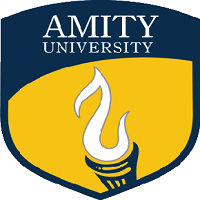
Ranked amongst top 3% universities globally (QS Rankings).

NAAC A++ Accredited | Accorded institution of Eminence by Govt. of India | NIRF Rank #4

Ranked #1 Among all Private Indian Universities in QS Asia Rankings 2025 | Scholarships worth 210 CR

Highest CTC 50 LPA | Average CTC 5.3 LPA | Merit Based Scholarships
M.Tech admissions open @ VIT Bhopal University | Highest CTC 52 LPA | Apply now
100+ Industry collaborations | 10+ Years of legacy